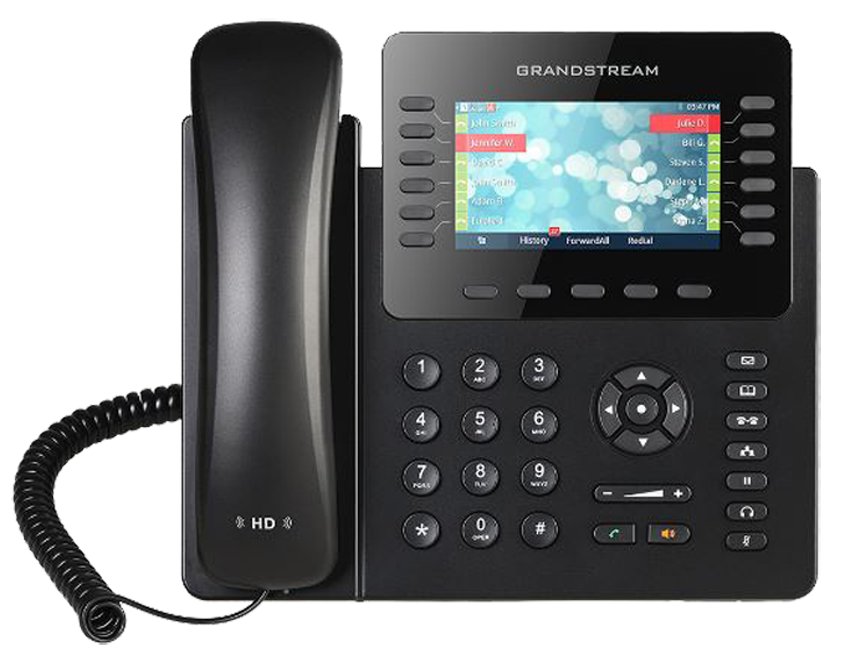What does it truly take to excel in sales? Beyond charisma and product knowledge, success hinges on building authentic connections rooted in empathy and trust. When salespeople listen deeply, respond genuinely, and demonstrate emotional intelligence, they transform brief interactions into lifelong partnerships. This approach isn’t just about closing deals—it’s about fostering long-term loyalty by understanding clients’ unspoken needs and acting with integrity. Can a focus on authentic engagement outshine transactional tactics? The evidence suggests it can. Real-world examples show that companies prioritizing empathy see significant improvements in conversion rates, customer loyalty, and reputation. By consistently showing genuine care, being transparent, and managing emotions effectively, sales professionals turn routine conversations into meaningful relationships that withstand market fluctuations. The question remains: in an increasingly informed and skeptical market, will your ability to connect on a human level be the ultimate differentiator capable of turning fleeting interactions into sustained success?
Forge Lasting Connections: The Power of Empathy and Trust in Sales
In sales, the focus often leans toward closing deals quickly or highlighting the standout features of a product. But at its heart, successful selling is about forging real connections. When salespeople take the time to genuinely understand their clients’ needs and show authentic care, they lay the foundation for trust that can last far beyond a single transaction. This emotional bond isn’t just a bonus; it’s essential in today’s crowded market, where buyers are more informed and selective than ever.
Building trust begins with empathy. When a salesperson listens carefully and responds thoughtfully, it signals that they value the relationship more than just the sale. This sincere engagement encourages clients to open up about their true concerns and goals, turning a routine conversation into a meaningful exchange. It’s through these moments of understanding that genuine connections form, transforming casual interactions into long-term partnerships.
Trust isn’t built overnight. It develops through consistent actions—being honest, transparent, and reliable. When salespeople keep their promises, share clear information, and admit when they don’t have all the answers, they reinforce their credibility. Over time, these behaviors create a sense of security that makes clients more comfortable sharing their long-term ambitions, which helps tailor solutions and deepen the relationship.
Emotional intelligence plays a vital role here. Recognizing nonverbal cues like tone of voice, facial expressions, or body language helps salespeople respond more empathetically. Managing their own emotions during challenging conversations ensures interactions remain respectful and constructive. When salespeople read and adapt to their clients’ emotional states, it makes the connection more personal and genuine, fostering trust that lasts.
Every interaction is an opportunity to strengthen this bond. Whether it’s a follow-up email, a helpful tip, or a simple check-in, small acts of consistency show clients they’re valued. When clients feel understood and appreciated, they’re more likely to become loyal partners who return and recommend your service. These long-term relationships, rooted in trust and empathy, are the true drivers of sustained success in sales.
Decode Human Behavior: Mastering Emotional Intelligence for Deeper Sales Relationships
Understanding human behavior is at the heart of effective sales psychology. People decide based on a blend of rational thought and emotional cues, often driven by subconscious motivations. Recognizing what motivates clients, how they process information, and what triggers their trust allows salespeople to create deeper connections. When you tap into these underlying drivers, you can anticipate reactions and tailor your approach to meet their unspoken needs, rather than just pushing features or benefits.
Emotional intelligence, or EQ, is crucial in this process. It’s the ability to perceive, interpret, and respond to emotions—both your own and those of your clients. High EQ helps you pick up on subtle signals like tone of voice, facial expressions, or body language, revealing how someone truly feels. Responding with empathy and adjusting your approach accordingly transforms a transactional exchange into a genuine dialogue, fostering trust and rapport.
Building trust extends beyond just initial interactions. It relies on consistency, honesty, and credibility. When salespeople follow through on promises, communicate transparently, and admit when they lack specific information, they reinforce their reliability. These small but meaningful behaviors gradually build confidence, encouraging clients to open up about their long-term goals and challenges. Trust is cultivated through ongoing, authentic engagement, not just a single moment of connection.
Long-term relationship-building involves demonstrating genuine care over time. Regular check-ins, personalized support, and proactive problem-solving show that your focus is on their success, not just closing a sale. When clients see that you remember details about their challenges and preferences, they feel valued and understood. This personalized attention turns a one-time transaction into a partnership rooted in mutual respect.
Understanding human behavior and emotional intelligence also helps in managing difficult conversations. Recognizing signs of hesitation or frustration allows you to respond with reassurance rather than pressure. Managing your own emotions ensures interactions stay respectful and constructive, even under stress. This ability to stay calm and empathetic helps deepen trust and keeps the relationship on a positive trajectory.
Effective relationship-building in sales isn’t about clever tricks; it’s about genuine engagement. Listening deeply, showing authentic interest, and being honest create a foundation of trust that can withstand market fluctuations and challenges. When clients feel truly understood, they’re more likely to become loyal advocates, recommending you to others and sticking with your solutions long-term.
Developing these skills takes practice, but the payoff is significant. Sales professionals who master the principles of human behavior and emotional intelligence create bonds that go beyond mere transactions. They foster loyalty, drive referrals, and build a reputation for integrity and care. These qualities turn everyday sales interactions into opportunities for lasting impact, ultimately translating into sustained success for both parties.
Practical Strategies to Build Authentic Client Relationships Every Day
Building authentic relationships with clients goes beyond a polished pitch; it hinges on practical strategies that foster genuine connection every day. One of the most effective approaches is active listening—giving your full attention, asking open-ended questions, and showing sincere interest in your clients’ concerns. When customers feel truly heard, they’re more willing to share their real needs, making it easier to tailor your solutions authentically. This attentiveness demonstrates that you value their perspective, turning a transactional encounter into a meaningful dialogue.
Transparency and honesty are equally vital. Sharing both the strengths and limitations of your product or service builds credibility and trust. Clients appreciate straightforward communication, which signals you’re genuinely invested in finding the right fit for their goals rather than just closing a sale. Being open about what you can and cannot deliver creates a safe space where clients feel comfortable discussing their challenges honestly, leading to more effective, personalized solutions.
Enhancing your emotional intelligence allows you to respond more empathetically and adapt to different personalities. Paying close attention to nonverbal cues like body language, tone, or facial expressions can reveal unspoken concerns or frustrations. Responding with reassurance and adjusting your approach accordingly helps diffuse tension and deepen rapport. Managing your own emotions during these exchanges ensures interactions stay respectful and constructive, fostering a sense of trust and mutual respect.
Consistent follow-up shows that your interest in your clients’ success extends beyond the initial conversation. Whether through regular check-ins, sharing relevant insights, or offering proactive support, these small acts reinforce reliability. When clients see that you remember their challenges and preferences, they feel genuinely valued. This personalized attention transforms a one-time sale into a long-term partnership rooted in trust and care.
Finally, tailoring every interaction to reflect a sincere understanding of your clients’ needs creates a relationship built on authenticity. Remembering key details about their goals, milestones, and concerns signals genuine interest. When clients sense this level of engagement, it encourages loyalty and positions you as a trusted advisor rather than just a salesperson. By embedding these practical strategies into your routine, you turn everyday conversations into meaningful steps toward lasting, mutually rewarding relationships.
For those looking to deepen their client relationships even further, exploring resources such as building authentic client relationships can provide valuable insights and practical tips. Incorporating these strategies into your daily routine can significantly enhance trust and long-term loyalty, ultimately leading to more successful and meaningful engagements with your clients.
Embedding Empathy and Trust into Your Daily Sales Routine
Integrating empathy and trust into daily sales routines starts with genuine authenticity. When salespeople truly believe in building honest, transparent relationships, their words and actions naturally foster trust. Being upfront about your product’s strengths and limitations shows integrity and signals to clients that you prioritize honesty over quick wins. This openness encourages them to share their true concerns, making conversations more meaningful and productive.
Active listening is one of the most powerful tools for demonstrating empathy every day. Instead of rushing into a pitch, give your full attention, ask open-ended questions, and show sincere interest in what your clients are saying. When clients feel truly heard, they become more comfortable opening up about their needs and challenges, which allows you to offer more tailored solutions. This attentiveness turns routine exchanges into authentic dialogues built on mutual understanding.
Pay close attention to nonverbal cues—body language, tone of voice, facial expressions—and respond with empathy. Noticing hesitation or frustration provides an opportunity to adjust your approach, offer reassurance, or clarify misunderstandings. Managing your own emotions during these moments keeps interactions respectful and constructive, creating a safe space where clients feel valued and understood.
Consistency reinforces trust over time. Small acts—like following through on promises, replying promptly, or sharing relevant insights—show that you’re reliable and genuinely invested in their success. When clients observe your ongoing commitment, they see you as more than a salesperson; they see a partner who cares about their long-term goals. These consistent gestures build a foundation of credibility that strengthens the relationship.
Personalization deepens your connection. Remembering details about your clients’ challenges, preferences, and milestones signals that you see them as individuals, not just transactions. Incorporating this knowledge into your conversations demonstrates genuine interest and attentiveness. When clients recognize your efforts to understand their unique situation, they’re more likely to trust your guidance and feel confident in your recommendations.
Every interaction offers a chance to practice these empathy and trust strategies. Approach each conversation with a mindset focused on connection rather than just closing a deal. Be honest, listen actively, and respond emotionally intelligent. Over time, these routines become second nature, transforming everyday sales efforts into meaningful relationships that are resilient and long-lasting.
Building empathy and trust isn’t about grand gestures—it’s about consistent, genuine actions. When salespeople embed these principles into their routine, they create bonds that go beyond individual transactions. Clients feel valued and respected, which encourages loyalty, referrals, and ongoing collaboration. In the end, fostering authentic relationships leads to sustainable success, benefiting both the salesperson and the client.
Real-World Success: How Empathy and Trust Drive Measurable Sales Outcomes
Building trust and demonstrating empathy have clear, measurable impacts on sales outcomes, as numerous real-world examples show. For instance, a software company shifted its approach from simply listing features to deeply understanding each client’s unique challenges. By actively listening and customizing solutions accordingly, they saw their conversion rates increase by around 30%. Customers appreciated the genuine effort to address their specific needs, which not only closed more deals but also fostered stronger loyalty over time.
In retail, brands that prioritize ongoing communication and transparency often turn one-time buyers into repeat customers. Regular follow-ups, personalized check-ins, and honest discussions about product limitations help create a sense of genuine care. Customers feel valued and understood when salespeople show they remember their preferences and challenges. This builds trust, encouraging loyalty and positive word-of-mouth that extends far beyond a single purchase.
Conversely, companies that overlook the emotional side of sales tend to lose opportunities and face higher rejection rates. When sales teams dismiss customer concerns or push too aggressively without building rapport, clients pick up on insincerity. This erodes trust and makes future engagement difficult. Recognizing the importance of listening and responding empathetically isn’t just good ethics—it’s a strategic advantage that can turn a hesitant prospect into a long-term partner.
Many top sales professionals attribute their success to authentic curiosity and active listening. Instead of leading with a sales pitch, they ask questions that uncover true motivations and underlying needs. Their honesty and transparency create an environment where clients feel safe and respected. This foundation of trust makes it easier to recommend tailored solutions and encourages clients to share future goals, strengthening the relationship over time.
These examples highlight that empathy and trust aren’t soft skills—they are powerful drivers of tangible results. When salespeople genuinely connect with clients, they do more than close deals; they create relationships that last. This approach leads to higher retention, more referrals, and a reputation for integrity that sets top performers apart in competitive markets. Focusing on authentic human connections is what fuels sustained growth and long-term success.
In today’s market, where buyers are more informed and discerning, the ability to build trust through empathy becomes a critical differentiator. Customers are increasingly seeking authentic interactions and meaningful relationships, not just quick transactions. When sales professionals invest in understanding their clients’ perspectives and demonstrate genuine care, they turn ordinary sales into partnerships built on confidence and mutual respect.
This shift toward relationship-driven selling isn’t just a trend; it’s a proven strategy that delivers consistent results. Businesses that embed empathy and trust into their sales culture see improved customer satisfaction, increased loyalty, and better overall performance. These qualities foster an environment where clients feel valued and understood, making them more receptive to recommendations and more likely to advocate for your brand.
Ultimately, the real impact of empathy and trust manifests in the loyalty and advocacy of long-term clients. When customers believe their needs are truly understood and their concerns genuinely addressed, they become more than just buyers—they become partners. This trust creates a cycle of ongoing engagement, referrals, and sustained growth, proving that genuine connection is the most valuable asset in sales.






